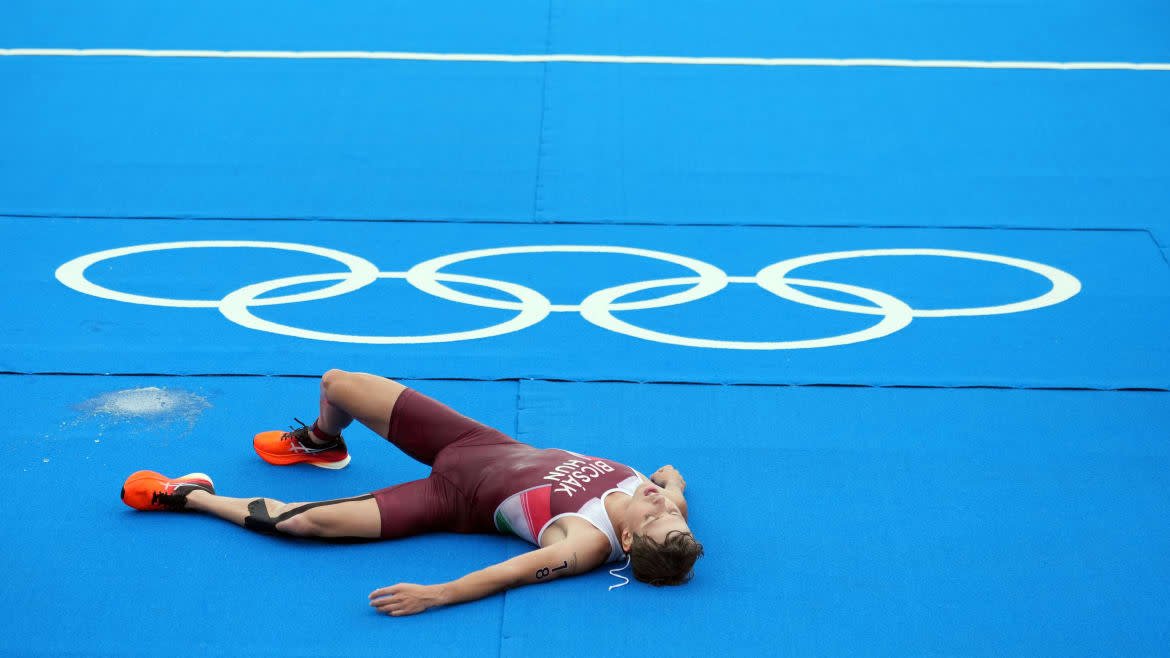‘Mild and Sunny’: The Weather Lies Tokyo Told to Win These Games

- Oops!Something went wrong.Please try again later.
Olympic host city contests are fraught, complicated, and expensive affairs. Whatever Baron Pierre de Coubertin might have said, the winning is the only thing that counts, not the taking part.
Which might explain a statement in the Tokyo 2020 bid document reassuring the International Olympic Committee about the likely conditions athletes would compete in during the Games: “With many days of mild and sunny weather, this period provides an ideal climate for athletes to perform their best.”
Olympic bid documents are not there to highlight a city’s problems, but as anyone who’s been to Tokyo this time of year could tell you, that line was at best optimistic, at worst a lie. But the question is why the IOC would accept it as true given the potential risks for athletes during a hot and humid Tokyo summer?
So far, in the first few days of the Tokyo Games there have been no really serious heat-related incidents, but the grumbles are building. Beach volleyball players have complained about the hot sand burning their feet. Novak Djokovic complained about the “brutal” heat after his first-round victory in the tennis. A Russian archer, Svetlana Gomboeva, collapsed in the 91 degree heat, but recovered after treatment. Monday’s triathlon set off at a ridiculously early 6:30 a.m.—although it was already 85 degrees with 67 percent humidity.
The athletes have done their best to prepare for the conditions. Triathlon bosses circulated a comprehensive guide on how to handle the heat and humidity last year. It warned against the risk of “exertional heatstroke” when an athlete’s core body temperature rose above 105F. British athletes have reportedly been ingesting pills that transmit their core body temperatures by Bluetooth to team doctors so they can be monitored for possible overheating.
COVID-19 restrictions—which organizers clearly have been forced into—are not helping. Athletes are not being allowed into Tokyo until a few days before their competitions begin, which means they have little time to acclimate. And weather-wise, the worst may be yet to come. Meteorologists are monitoring two major high-pressure zones (over Tibet and the North Pacific) that are another common feature of Tokyo summers. If they join up, Olympians can expect a real heat wave with daytime temperatures topping an unplayable 100 degrees. And if that hits the Paralympics, there could be serious consequences for the athletes.
In 1964, when Tokyo last hosted the Games, they were held in October to avoid the worst of the summer heat. This time around, other demands have taken priority.
As Yahoo News columnist Dan Wetzel put it after watching the exhausted triathletes collapse over the finish line on Monday: “No, the Japanese don’t have to apologize for the weather here—the searing sun, the sky high temps, the pea-soup humidity. No one tells Mother Nature what to do. But as athletes continue to wilt and wither in these conditions, they do owe everyone an apology for this much: They lied like hell about it.”
Get our top stories in your inbox every day. Sign up now!
Daily Beast Membership: Beast Inside goes deeper on the stories that matter to you. Learn more.

